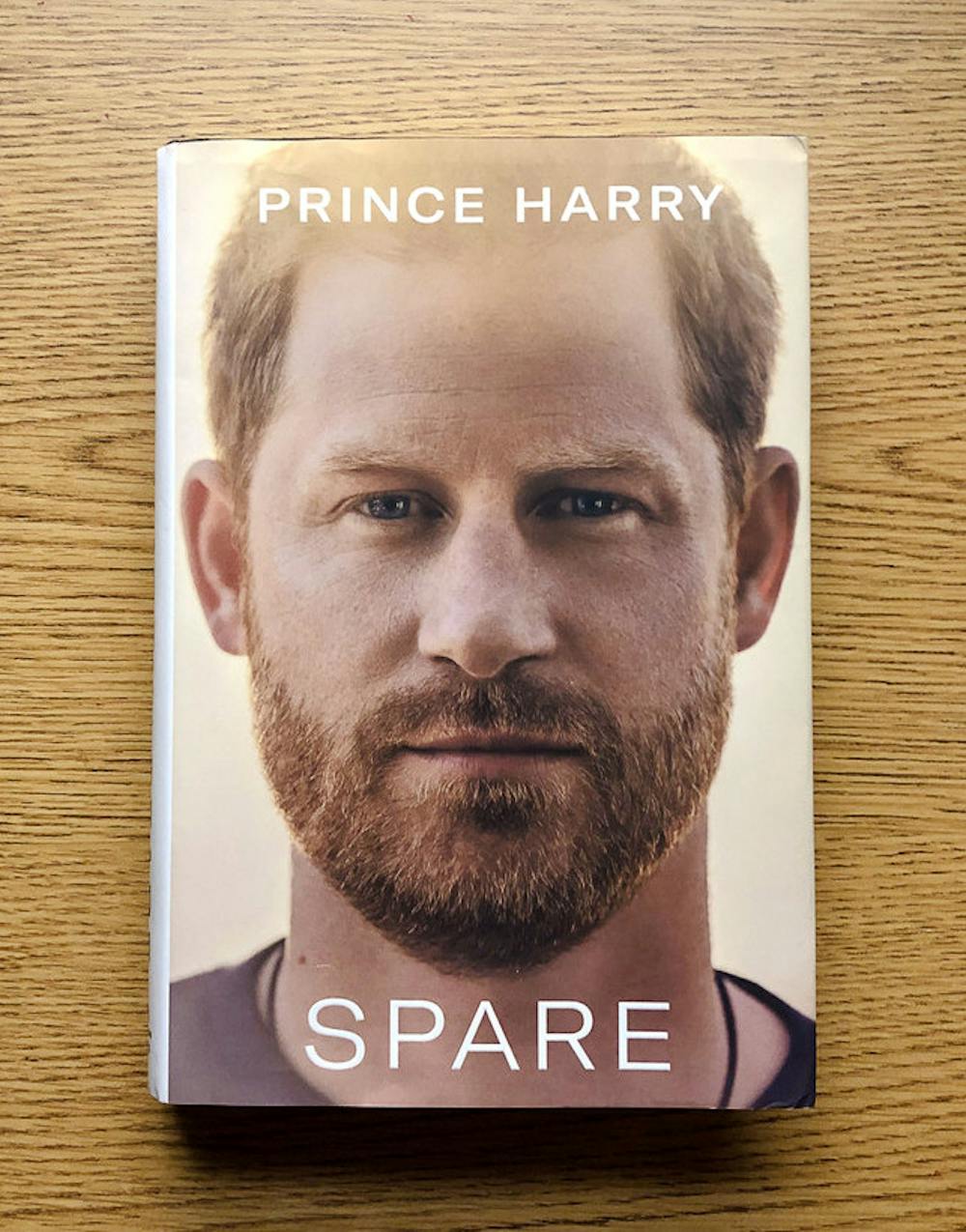Prince Harry may have been the spare — or the second-in-line behind the heir, his older brother Prince William — to the throne, but he is certainly reigning supreme in the global spotlight. Harry’s highly-anticipated memoir, “Spare,” made its explosive debut on Jan. 10, setting a record of 1.43 million sales on the first day of its release. Excerpts that leaked prior to publication fueled the book’s popularity, enticing readers worldwide with the promise of more morsels of royal gossip.
“Spare” fulfilled this promise with scathing salvos directed towards the British press, unforgiving representations of the prince’s family and much-too-personal information about his nether regions. Yet to focus only on the scandalous elements of the memoir would be a grave mistake. While Harry’s experience inside his so-called “gilded cage” of the British monarchy is unrelatable for most, he illuminates a universal journey of grief, healing and belonging. Harry’s honest narration and steadfast commitment to detail offer an elevated, more candid account of the stories British tabloids have used to exploit him for decades.
One of “Spare’s” most stunning qualities is its vivid descriptions of setting. Through phenomenal memory and masterful attention to detail, Harry and his ghostwriter, J.R. Moehringer, open the memoir on a quiet summer day in Balmoral, Scotland, the site of the Queen’s summer home. The picturesque recollection of the spacious estate and beautiful landscape is shattered as he describes learning that his mother, Princess Diana, has died in a car crash in Paris.
Loss is a difficult emotion to put into words, but “Spare” manages to do so in a poignant and eloquent fashion. By retelling his experience from the perspective of his young, grieving self, Harry invites readers to be present in that formative moment. This unique stylistic perspective allows readers to struggle, grow and mature with Harry throughout his personal journey.
“Spare” explores Harry’s shifting perspectives by describing his experiences from three parts of his life: as a young boy grappling with despair and feelings of inadequacy, as a soldier slowly learning his purpose and as a husband and father striving to hold himself and others to a higher standard.
One unifying element of these three sections is Harry’s hatred for the press and paparazzi. He interrupts jovial stories by inserting dramatic headlines ranging from mocking a bad haircut to accusing him of having a drug addiction and cheating. Harry challenges readers to experience this harassment through the eyes of his teenage self, forcing them to reevaluate their complicity in invading the privacy of those in the gilded cage. The book’s first section ends with a promise of hope for Harry as he hopes to find relief from both the media’s scrutiny and his internal struggles by joining the military.
The book’s second part leaves these hopes partially unrealized and offers the least compelling portion of the narrative. Harry seeks to explain how the military gave him a newfound sense of belonging while noting how the press ruined his chances for a typical service experience, but his exhaustive descriptions of military equipment and missions muddle this sentiment.
But the image of a royal on psychedelics helps revive readers — and reestablish his depth of personality — after a dreary war narrative. Harry offers a refreshing transition into Part Three by sharing a story of a mushroom trip. As he sits on the beach, the moon begins speaking to him, assuring him that the year to follow would be a good one.
Sure enough, a few months later, he meets his future wife, Meghan Markle.
The final part of the memoir focuses on Harry’s courtship with Meghan and subsequent fallout with the rest of the royal family. It unravels into a bashing of his adversaries, especially a press core he accuses of racism and his complicit family members.
But this ending distracts from the main point of Harry’s memoir: addressing the toxicity of the media and explaining how his decision to leave the throne was to protect his family. Through emotional descriptions of Meghan’s struggle with suicidal thoughts and his struggles to protect her and his children, Harry forces the public to question the dehumanization of famous figures for entertainment value.
Ironically, Harry’s denunciations of the press, and his family’s cooperation with them, have generated negative backlash from — you guessed it — the press. News outlets accuse Harry of lying about certain details of his book, attempting to discredit his entire narrative. Others have suggested that the book shared too many details, catalyzing popular support for the stripping of his royal title.
Clips of the audiobook version of “Spare” have also circulated widely online as Prince Harry reads in depth about his private parts suffering from frostbite. While many criticize these details as too intimate and slightly disturbing, Harry’s willingness to be vulnerable adds a necessary layer of comedy and honesty that makes this book memorable. His courage to share the gritty, unglamorous elements of his story conveys a sense of authenticity and humanity.
“Spare” is more than an explosive blow against Buckingham Palace. It is an invitation to rethink our treatment of others in a world of gossip and clickbait. It is a reminder that no one is spared from human struggles. Most of all, it challenges us to question how much we are willing to sacrifice to protect those we love.
Daphne is an Arts & Culture writer from Austin, Texas. She is planning on studying International and Public Affairs. Her passions include cats, running and Phoebe Bridgers.





